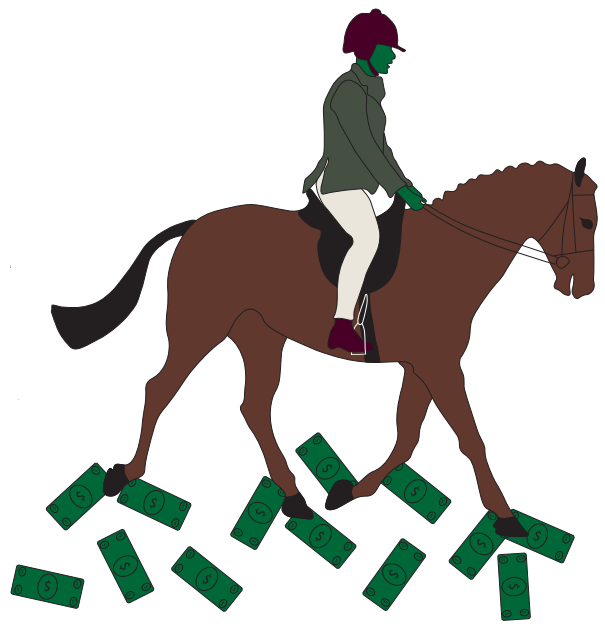Opening Eyes to Elitism
December 19, 2022
Elitism in athletics is something that has been around for as long as sports have been competitive, potentially impacting the atmosphere of tournaments at LASA. Elitism is the sense of superiority in a person, athletic club, or school that considers themselves better in aspects regarding their sport for various reasons.
Freshman Claire Zhou is currently a member of the LASA tennis team and a player at Polo tennis club. According to Zhou, elitism can show itself in the way people treat you during a game.
“In tennis, if you’re significantly better in school, or you have a higher skill than others, you try less or you don’t respect other players as much on court,” Zhou said. “That can reflect what you think of them. I feel like certain clubs show elitism because of the people that attend them or the coaches and the staff. They can make it feel like you have to be a certain type of person for other people to perceive you well.”
While elitism does play a part in many sports, not all athletic activities experience it to the same level, according to senior Liam Mcdonald. Mcdonald is a current member of the Great Hill’s Aquatics Rush swim team and has noticed that in his experience, swimming seems to not have that much elitism in it, except on rare occasions when athletes change their style of play.
“I would say the biggest attribute in swimming would be intentionally going slow knowing that you could beat people because that hurts [and disrespects the work they put into the competition],” Mcdonald said. “Even if they are going slow because they are tired.”
According to Zhou, elitism becomes more prevalent in areas where there is a bigger difference in socioeconomics. Zhou said something as typical as high membership fees for many athletic clubs shows elitism in the sense that it creates an environment based on class.
“Being able to become a member or play at the practices [for clubs] are pretty pricey, and like at Polo, worth the investment because the coaching is good, but it’s less accessible,” Zhou said. “If you come from a lower income family, your opportunities with the sport could be less than someone who comes from a higher income family.”
Junior Elizabeth Ree is a member of LASA’s cross country, track and field, and cheerleading team. Ree, through her various experience in multiple sports, has also said that elitism can stem from school funding and stereotypes.
“Other teams definitely get more money than we do which gives them an advantage,” Ree said. “Cheer costs more than cross country does because for cross [country] you really just need shoes while for cheer you need shoes, pompoms, and a uniform. I’m not sure how we could help with the problem of funding because it changes between schools and is pretty hard to influence. You can feel discouraged and not want to try because of how people feel better than you and that reduces the amount of people participating. But LASA is a really nice and welcoming place, so it’s really easy to get into a sport because of this.”
McDonald believes that the best way to repair damages done from elitism is to share resources and avoid having too many aspects in competitions that are dependent on finance. According to him, elitism will be a tough case to crack in the future.
“It’s caused by people having those advantages, and not sharing it for competition advantages,” McDonald said. “I think that the biggest problem of elitism is that it takes away the point of sports which is to have fun and if you’re barred by that and socially gatekeeping it then you’re violating the entire thing. I would say that elitism is a really big problem and is going to be really hard to solve.”


